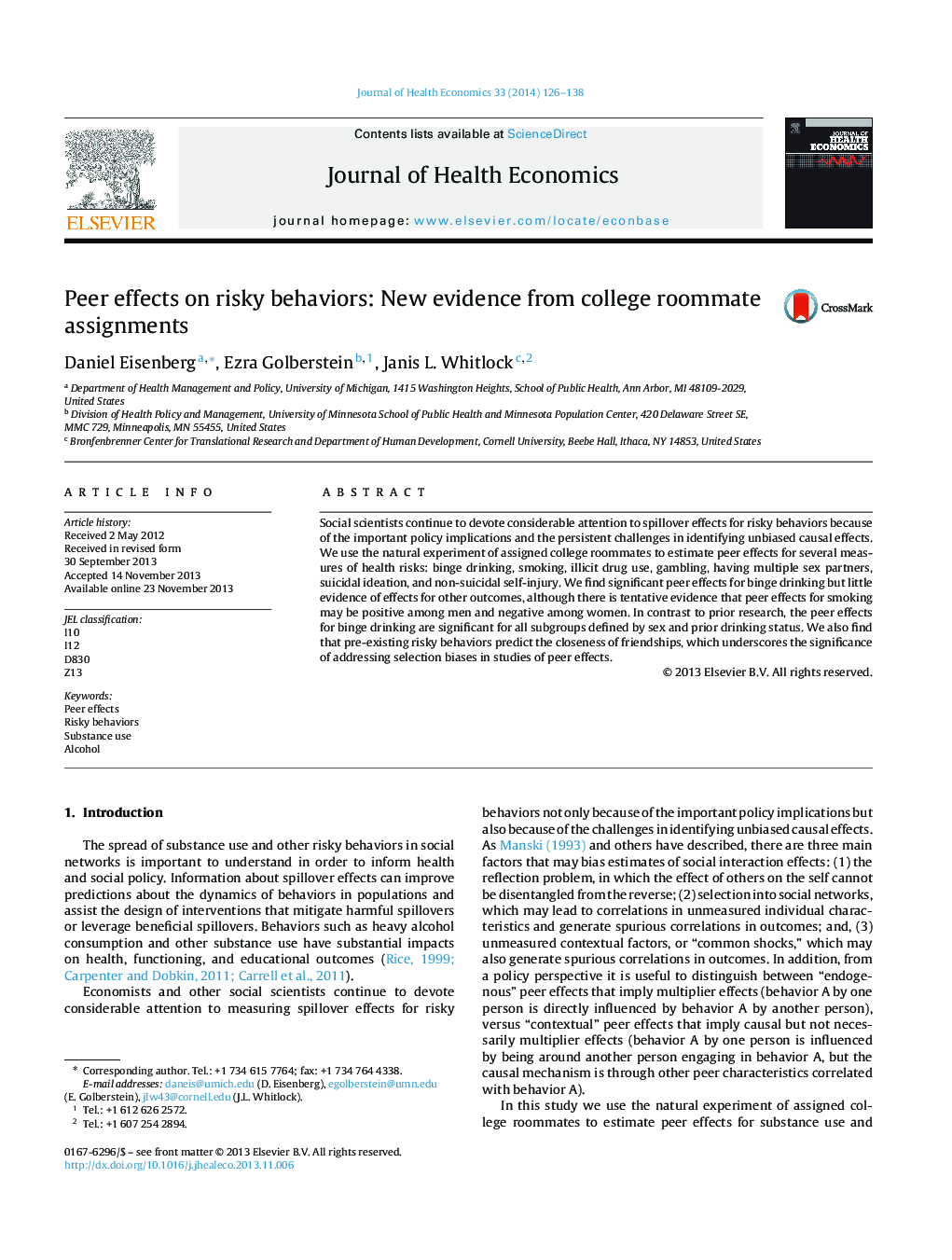| Article ID | Journal | Published Year | Pages | File Type |
|---|---|---|---|---|
| 961259 | Journal of Health Economics | 2014 | 13 Pages |
Abstract
Social scientists continue to devote considerable attention to spillover effects for risky behaviors because of the important policy implications and the persistent challenges in identifying unbiased causal effects. We use the natural experiment of assigned college roommates to estimate peer effects for several measures of health risks: binge drinking, smoking, illicit drug use, gambling, having multiple sex partners, suicidal ideation, and non-suicidal self-injury. We find significant peer effects for binge drinking but little evidence of effects for other outcomes, although there is tentative evidence that peer effects for smoking may be positive among men and negative among women. In contrast to prior research, the peer effects for binge drinking are significant for all subgroups defined by sex and prior drinking status. We also find that pre-existing risky behaviors predict the closeness of friendships, which underscores the significance of addressing selection biases in studies of peer effects.
Related Topics
Health Sciences
Medicine and Dentistry
Public Health and Health Policy
Authors
Daniel Eisenberg, Ezra Golberstein, Janis L. Whitlock,
